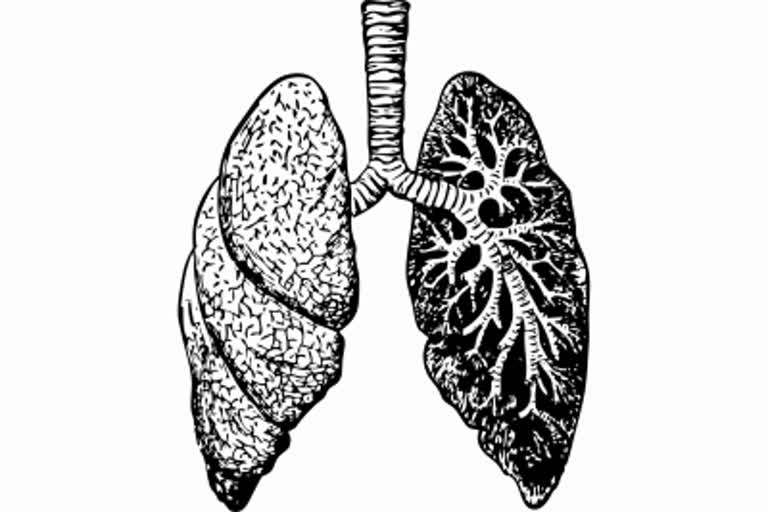An analysis of lung tissues from patients with different types of pulmonary fibrosis -- including cases triggered by Covid-19 -- has revealed a promising molecular target to improve the chronic and irreversible disease, say researchers.
Experiments in mouse models of lung fibrosis showed that administering blockers of an epigenetic regulator called MBD2 via intratracheal inhalation protected the mice against fibrotic lung injury, highlighting a potential viable therapy. A poor understanding of what causes pulmonary fibrosis has greatly hindered the development of treatments, and to this day, no effective therapy is available other than lung transplantation.
For the current results, published in the journal Science Advances, the research team from Shenzhen University in China, studied lung samples from patients with pulmonary fibrosis triggered by one of three causes: SARS-CoV-2 infection, systemic sclerosis-associated interstitial lung disease, or an unknown factor. The researchers also studied mouse models of pulmonary fibrosis, which they induced in the animals by administering the compound bleomycin.
All cases of pulmonary fibrosis, they found, were characterized by overexpression of MBD2. This activity localized in areas occupied by macrophages - known contributors to the development of pulmonary fibrosis.
To investigate this further, the scientists depleted the Mbd2 gene in macrophages of mice, which protected the animals against pulmonary fibrosis, characterized by markedly reduced macrophage accumulation in the lung following administration of bleomycin.
As well, direct administration of liposomes -- established carriers of inhaled drugs -- loaded with MBD2 silencer RNA into the trachea of mice protected them from lung injuries and fibrosis.
"Since MBD2 it does not affect the essential epigenetic process of DNA methylation, inhibiting the molecule could prove to be a safe way to treat pulmonary fibrosis," the study authors wrote.
"However, future studies will first need to assess the impact of altered MBD2 expression in other types of cells relevant to pulmonary fibrosis, they noted.
New model shows promise to treat lung fibrosis in Covid patients
As we are aware that COVID 19 affects lungs and can be fatal in the patients suffering from different types of pulmonary fibrosis. As per an experiment done on mouse a certain administration of fibrosis blocker showed positive results against lung injury.

An analysis of lung tissues from patients with different types of pulmonary fibrosis -- including cases triggered by Covid-19 -- has revealed a promising molecular target to improve the chronic and irreversible disease, say researchers.
Experiments in mouse models of lung fibrosis showed that administering blockers of an epigenetic regulator called MBD2 via intratracheal inhalation protected the mice against fibrotic lung injury, highlighting a potential viable therapy. A poor understanding of what causes pulmonary fibrosis has greatly hindered the development of treatments, and to this day, no effective therapy is available other than lung transplantation.
For the current results, published in the journal Science Advances, the research team from Shenzhen University in China, studied lung samples from patients with pulmonary fibrosis triggered by one of three causes: SARS-CoV-2 infection, systemic sclerosis-associated interstitial lung disease, or an unknown factor. The researchers also studied mouse models of pulmonary fibrosis, which they induced in the animals by administering the compound bleomycin.
All cases of pulmonary fibrosis, they found, were characterized by overexpression of MBD2. This activity localized in areas occupied by macrophages - known contributors to the development of pulmonary fibrosis.
To investigate this further, the scientists depleted the Mbd2 gene in macrophages of mice, which protected the animals against pulmonary fibrosis, characterized by markedly reduced macrophage accumulation in the lung following administration of bleomycin.
As well, direct administration of liposomes -- established carriers of inhaled drugs -- loaded with MBD2 silencer RNA into the trachea of mice protected them from lung injuries and fibrosis.
"Since MBD2 it does not affect the essential epigenetic process of DNA methylation, inhibiting the molecule could prove to be a safe way to treat pulmonary fibrosis," the study authors wrote.
"However, future studies will first need to assess the impact of altered MBD2 expression in other types of cells relevant to pulmonary fibrosis, they noted.


